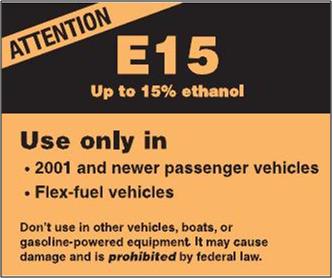- Blog
- Climate & Energy Justice
- A salute to science over politics
A salute to science over politics

Donate Now!
Your contribution will benefit Friends of the Earth.
Stay Informed
Thanks for your interest in Friends of the Earth. You can find information about us and get in touch the following ways:
Yesterday the House Science, Space, and Technology Committee approved a bill that would require the EPA to do a more thorough analysis on the effects for consumers, the economy, and the environment of increasing the amount of corn ethanol in gasoline by 50 percent before it is sold at pumps. Friends of the Earth, along with a diverse coalition, supported the bill, H.R. 3199, with a letter to the committee earlier this week.
Currently, almost all the gasoline used in the U.S. is actually a blend of roughly 10 percent ethanol and 90 percent traditional gasoline – a fuel referred to as E10. Almost every drop of the ethanol used in our transportation sector comes from corn, and corn ethanol is absolutely horrendous for the environment. The EPA’s own data shows that corn ethanol is actually worse for the climate than gasoline, and multiple studies have proven that corn ethanol is a leading source of soil erosion, air and water pollution. The use of corn for ethanol is also a cause of spiking food prices, which increases hunger and poverty in the U.S. and abroad. Corn ethanol – and any fuel made from food for that matter- should never be considered a “renewable fuel.”
Unfortunately, the EPA is actually considering allowing even more corn ethanol to be blended into our gasoline. E15 – a blend of 15 percent ethanol and 85 percent gasoline – has already been approved for use in cars made since 2001. The EPA is currently working on finalizing the registration of E15 for sale to the general public. This is extremely problematic as it would increase the amount of corn ethanol in gasoline by 50 percent, likely leading to even more environmental and social destruction. Plus, E15 has been shown to have worse tailpipe emissions than other fuels, which could lead to serious human health issues. Do we really want more smog in cities? Are our children not sick enough already?
On top of that, E15 is also going to hit consumers’ wallets. E15 has been shown to damage engines in everything from cars and motorcycles to boats and snowmobiles and even chainsaws. The United Stated Coast Guard warned that E15 in boat and marine engines is like metal in a microwave – it increases the risks of engine fires and explosions. If a consumer accidentally uses E15 instead of another fuel, their engine warranty will likely be voided and the consumer will be stuck paying out of pocket for the damage. Chrysler, among many others, recently stated that “the warranty information provided to our customers specifically notes that use of the blends beyond E10 will void the warranty.” The fuel could also cost more over the long-run for consumers who choose to use it; ethanol has only 70 percent the energy content of gasoline, so increasing the amount of ethanol in gas will lower the mpg of the fuel and require consumers to fill up more frequently.
So why is EPA considering approving such a destructive fuel, one that will harm the environment and hurt consumers? Well, the EPA says they’ve seen the science, and they think it’s fine. While Friends of the Earth deeply values and respects the EPA, we also think they’ve made a mistake here, and more study is absolutely needed to ensure that this fuel – or any transportation fuel for that matter – will not harm the environment or consumers.
Wisconsin Republic Rep. Jim Sensenbrenner’s bill, H.R. 3199, does just that. The bill requires the EPA to team up with the National Academy of Sciences to do a more thorough analysis of the effects of the E15 before releasing it for general sale to the public. While the bill has been contentious – it passed strictly along party lines – Friends of the Earth believes the need for science and study is a non-partisan issue. EPA got this one wrong, and they should take another hard look at the consequences of E15 before approving it for sale.
